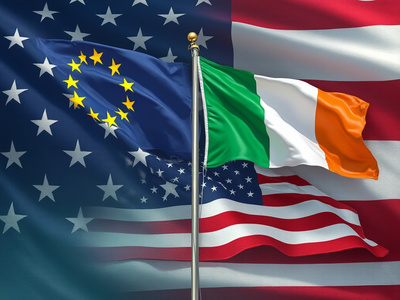President Trump Calls on the Federal Reserve to Reduce Interest Rates in Light of New Tariffs
Federal Reserve Chair Jerome Powell warns against swift interest rate reductions, highlighting the inflation threats posed by increased tariffs.
On April 4, 2025, U.S. President Donald Trump urged Federal Reserve Chair Jerome Powell to lower interest rates, pointing to declining energy prices, reduced inflation, and increasing employment rates.
In a post on his social media platform, Trump highlighted recent statistics indicating a sixty-nine percent fall in egg prices over two months and called on Powell to "stop playing politics."
These comments come at a time of increased volatility in global markets following the United States' announcement of new tariffs on Chinese imports.
In retaliation, China enacted a thirty-four percent tariff on all goods imported from the U.S.
Speaking at a press conference in Virginia on the same day, Chair Powell remarked that the Federal Reserve would await further clarity before making any adjustments to interest rates.
He observed that the newly introduced tariffs were "significantly larger than expected," likely leading to heightened inflation and slower economic expansion.
Powell stressed that the Fed is dedicated to keeping long-term inflation expectations stable and preventing the risk of sustained price increases.
He recognized that while the U.S. economy seems robust, the overall impact of the tariffs remains uncertain, and the central bank would proceed cautiously.
In the wake of the tariff announcements and prevailing uncertainty, U.S. financial markets experienced notable declines.
The S&P 500 fell by 4.8 percent, the Dow Jones Industrial Average decreased by 4 percent, and the Nasdaq Composite dropped by 6 percent, recording its largest daily fall since March 2020.
The Federal Reserve’s current benchmark interest rate is set between 4.25 and 4.5 percent.
In a post on his social media platform, Trump highlighted recent statistics indicating a sixty-nine percent fall in egg prices over two months and called on Powell to "stop playing politics."
These comments come at a time of increased volatility in global markets following the United States' announcement of new tariffs on Chinese imports.
In retaliation, China enacted a thirty-four percent tariff on all goods imported from the U.S.
Speaking at a press conference in Virginia on the same day, Chair Powell remarked that the Federal Reserve would await further clarity before making any adjustments to interest rates.
He observed that the newly introduced tariffs were "significantly larger than expected," likely leading to heightened inflation and slower economic expansion.
Powell stressed that the Fed is dedicated to keeping long-term inflation expectations stable and preventing the risk of sustained price increases.
He recognized that while the U.S. economy seems robust, the overall impact of the tariffs remains uncertain, and the central bank would proceed cautiously.
In the wake of the tariff announcements and prevailing uncertainty, U.S. financial markets experienced notable declines.
The S&P 500 fell by 4.8 percent, the Dow Jones Industrial Average decreased by 4 percent, and the Nasdaq Composite dropped by 6 percent, recording its largest daily fall since March 2020.
The Federal Reserve’s current benchmark interest rate is set between 4.25 and 4.5 percent.










